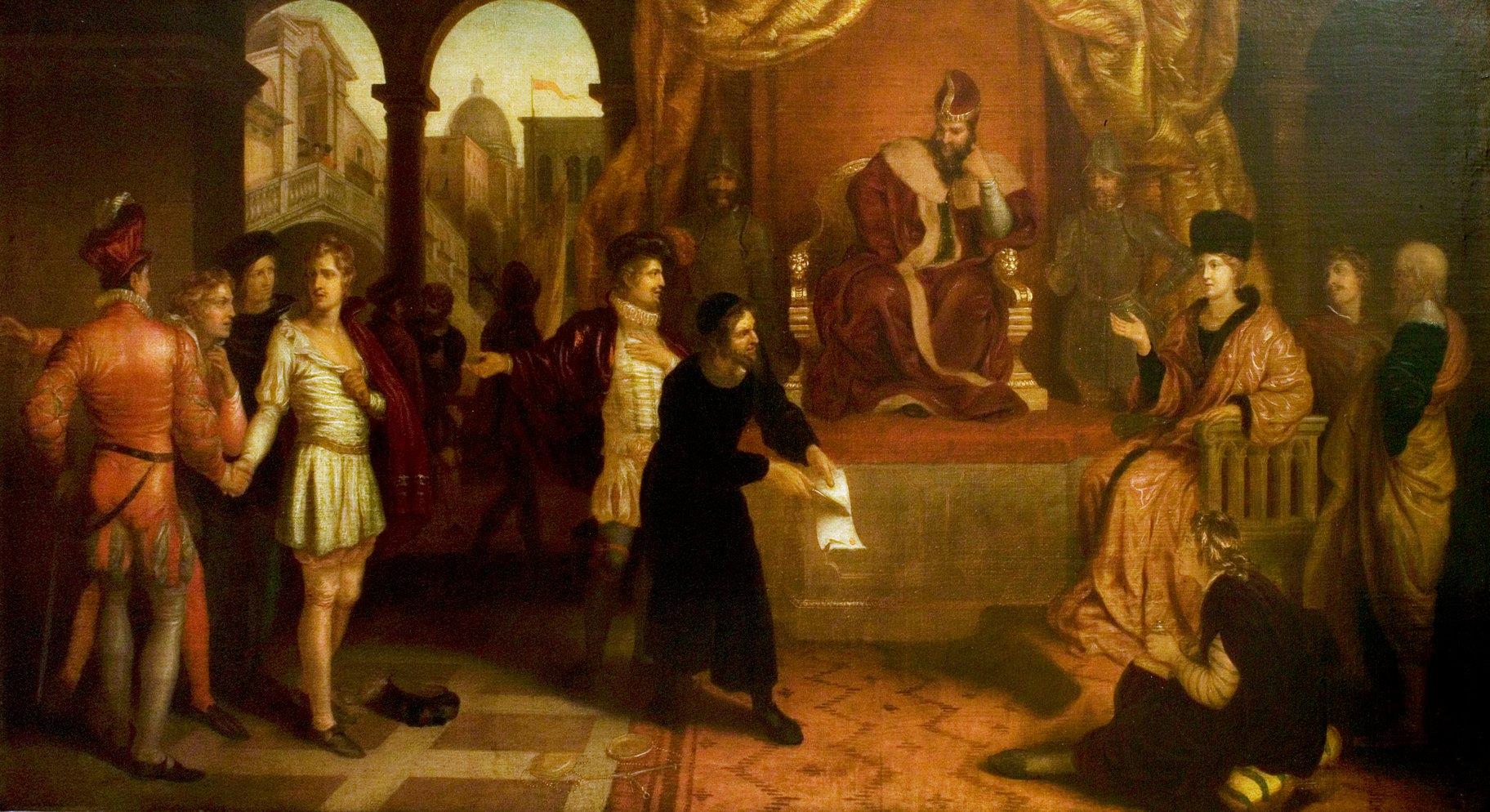Is Kleros Legally Valid as Arbitration?
The first Kleros Fellow, Dmitry Narozhny presents his analysis of key international treaties relating to arbitration and points to how Kleros fits into the international framework.

By Dmitry Narozhny
The Kleros Fellowship program is running strong, and today we bring you insight written by our first Fellow about Kleros as a model of arbitration and how it relates to some of the most important international treaties on the matter.
Shylock: Is that the law?
Portia: Thyself shalt see the act:
For, as thou urgest justice, be assured
Thou shalt have justice, more than thou desirest.
William Shakespeare, The Merchant of Venice,
Act IV, Scene I. Venice. A court of justice.

Two simple questions should be answered for the sake of confidence in Kleros as an arbitrator. Does Kleros dispute resolution conform to the law? Would a court recognize a Kleros jurors' ruling? Let me argue here that the answer is “yes” to both.
Legal Definition: is Kleros Arbitration?
Currently a general pattern among state regulators is to encourage implementation of alternative and online dispute resolution (ADR, ODR) in commercial and consumer disputes.
The following well-known lawmaker’s blessings should be named in this regard: U.S. Alternative Dispute Resolution Act (28 U.S. Code §651), EU Directive on Consumer ADR and Regulation on Consumer ODR (Directive 2013/1/EU and Regulation 524/2013 of 21 May 2013) and UNCITRAL Technical Notes on Online Dispute Resolution (2017).
All of these regulations provide wide “umbrella” definitions for a variety of ADR and ODR out-of-court techniques, such as mediation, negotiation, arbitration, etc., which are conducted through the use of electronic communications.
Kleros is a blockchain-based platform and provides arbitration by means of information and communication technology. This clearly matches valid legal terms of alternative and online dispute resolution.
Under the clauses of international law, Kleros’ dispute resolution process is an arbitration scheme. Namely, the UNCITRAL Model Law on International Commercial Arbitration adopts that “arbitration” means any arbitration whether or not administered by a permanent arbitral institution.
Some could argue that, in its traditional understanding, arbitration has little to do with Kleros’ random choice of crowdsourced jurors, cryptoeconomic incentives and the fact that the procedure is conducted in a completely hands-off approach by an automated blockchain protocol.
However, these arguments fail to exclude Kleros from an arbitration avenue. Kleros specific details may differ from arbitration methods that were tried before, but its general framework it's still recognizable as alternative dispute resolution.
This is absolutely evident since UNCITRAL principles explicitly preserve parties' full freedom to determine the rules of arbitration procedure on their own.
Building on this, it is evident that Kleros conforms to the law. But this isn't yet enough to conclude that Kleros is capable of producing a lawful and internationally recognizable ruling.
For this, the dispute resolution procedure itself must be compliant to substantive due process principles of international arbitration.
Due Process: is Kleros Compliant with Substantive Arbitration Principles?
A procedure's compliance/non compliance with a set of substantive principles is what makes its rulings valid/invalid. That compliance is what would be examined by a state court when evaluating pro et contra of endorsement of each and every ruling at stake.
To distil applicable international rules to Kleros' procedure, this examination may be conducted around these four layers: 1) Scholarly research on general principles of international due process; 2) International conventions and model laws; 3) Best practices and recommendations; 4) Laws and regulations.
Besides the resources mentioned above, the following should be listed here: Article V of the New York Convention on the Recognition and Enforcement of Foreign Arbitral Awards; Article 6 of the European Convention on Human Rights; ALI/UNIDROIT Principles of Transnational Civil Procedure (this list is far from being exhaustive).
The design of Kleros’ dispute resolution process complies with all core principles of due process. In particular: independence, impartiality, jurisdiction, effectiveness and accessibility, liberty, legality, expertise and, to be emphasized - procedural fairness.
Indeed, Kleros is a decision protocol (“accessibility”) for a multi-purpose opt-in court system (“liberty”, “jurisdiction/competence”). It is decentralized (“independence”), allowing arbitration of smart contracts by crowd-sourced jurors relying on economic incentives (“impartiality”). It is an autonomous organization (“independence”) that works as a decentralized third party to arbitrate disputes in every kind of contract (“impartiality”).
Every step of the arbitration process (securing evidence, selecting jurors, etc.) is fully automated (“procedural fairness” and “transparency”). Kleros does not rely on the honesty of a few individuals but on game-theoretical economic incentives (“expertise”).
Smart contracts are smart enough to automatically execute as programmed, but not to render subjective judgements or to include elements from outside the blockchain (“data confidentiality and security”). Each subcourt should have some specific features regarding policies (“legality”, “non-contradiction to public policy”), session time and cost (“effectiveness”), number of drawn jury members and tokens activated.
Recognition: could Kleros Rulings be Overturned by Courts?
The New York Convention on the Recognition and Enforcement of Foreign Arbitral Awards expressively reduces compliance requirements to the following common denominator: the grounds for a refusal to recognize and enforce an award.
It is important to make a reservation here: Kleros is a self-enforceable arbitration method.
Thus, what we have to discuss isn't recognition and enforcement (because smart contracts would be enforced anyway), but rather subsequent judicial review of an already executed ruling, made on the grounds of The New York Convention.
In international commercial arbitration, there is a strong presumption that awards are valid and that they should be enforced. The New York Convention's “pro-enforcement bias” prevents any court from reviewing the merits of the underlying dispute. The review emphasizes on due process and public policy concerns.
In this regard, it is admirable how the procedural grounds to refusal (incapacity, lack of jurisdiction, lack of proper notice, tribunal not composed according to arbitration agreement, non-arbitrability of subject-matter, right to present a case, right to be heard and right to present an evidence and defences) are mitigated in advance by Kleros' protocol design.
In fact, the whole dispute resolution process would not commence until the smart contract receives pre-determined evidence of mutual unequivocal consent of the parties to arbitrate and if the subject-matter of their dispute fits the algorithms enshrined in the Kleros platform.
Furthermore, compliance with due process requirements is a built-in feature of the protocol: such stages as proper notice of the parties, composing of jurors tribunal, exchange of evidences and comments of the parties are executed automatically by smart contracts. As a result, Kleros rulings are a hard target for overruling.
Kleros’ technique, elegant at its simplicity and efficiency, provides more consistent procedural protections and thus a more predictable judicial outcome.
In short, Kleros arbitration process fits within the structures and frameworks of a legally binding arbitration protocol.
Dmitry Narozhny is a lawyer based in Russia, specializing in commercial court litigation, civil and corporate law, and bankruptcy. He is Member of the Russian Advocate Board. Dmitry is also the first graduate of the Kleros Fellowship Program.
Oh, Before You Go, Why Not Click Below and Become a Kleros Juror?

Join the community chat on Telegram.
Visit our website.
Follow us on Twitter.
Join our Slack for developer conversations.
Contribute on Github.


